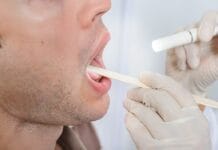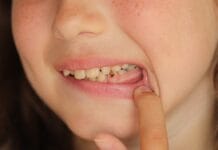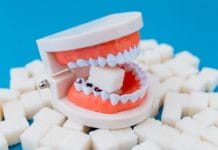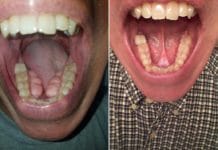Studies have found there is a strong correlation between pregnancy outcomes and a pregnant woman’s oral health. The topic of how well health professionals know of this correlation was explored in a recent study titled “Evaluating Oral Health in Pregnant Women: Knowledge, Attitudes, and Practices of Health Professionals” which was published in the February 2019 edition of the Journal of Dental Hygiene.
Pregnant Women and Oral Health
It is especially important pregnant women have excellent home care and maintain a healthy mouth, especially since poor dental health could negatively impact their baby. Pregnant women who neglect their oral health are more likely to develop periodontal disease and other health issues. Links have been shown periodontitis can lead to pre-term babies and low birth weight babies Besides this, below are just a few reasons pregnant women should be vigilant about their oral health:
Pregnancy Gingivitis: Fluctuating hormone levels can cause pregnancy gingivitis. As a result, it can cause gingival inflammation while they are pregnant. This type of gingivitis can also make their gingiva bleed and become more sensitive.
Pregnancy Tumors: The American Dental Association reports that many women develop pregnancy tumors (pyogenic granuloma) while they are pregnant. A pregnancy tumor is a small tissue growth inside their mouth caused by inflammation. Usually, pregnancy tumors happen during the second trimester, and it is usually linked to pregnancy gingivitis. Although doctors can remove the tumor if it becomes too uncomfortable for the patient, the mass usually dissolves on its own after the baby is born.
Gastric Acid: Pregnant women who experience morning sickness should also take extra precaution with their oral health. Throwing up can cause stomach acid to gradually erode their tooth enamel.
About the Study
Since pregnant women with lackluster oral health are more likely to have periodontitis or an adverse pregnancy outcome, the researchers in the aforementioned study wanted to evaluate whether pregnant women understood the importance of oral hygiene. They also wanted to do the same with medical professionals, and see if they actually discussed it with pregnant patients during their prenatal visits.
The lead investigator, Sarah B. Hoerler, RDH, MS is a registered dental hygienist in the Department of Dental Specialties, Division of Periodontics at the Mayo Clinic. She also enlisted the help of fellow colleague, Sarah Jenkins, who has a master’s degree and is a statistician in the Department of Health Sciences Research, Division of Biomedical Statistics and Informatics. Daniel Assad, DDS, MA, who is a periodontist and the residency director in the Department of Dental Specialties, Division of Periodontics also helped with the study.
The researchers decided to offer an online survey to 76 prenatal health professionals for the study. A mixture of doctors, nurse practitioners, midwives, and medical residents participated. Based on the results of the survey, an overwhelming majority (80%) believed that oral health was an important part of prenatal care. However, despite those beliefs, only a small fraction (7%) of medical professionals made it a priority to discuss regular dental exams when talking with patients.
Based on the results of their research, Hoerler believes there is a gap between prenatal health care professionals understanding how much oral health is important and actually implementing it into their everyday practice. There was a positive correlation whenever medical professionals took the time to ask pregnant patients about their oral health during their initial interview and also discussed it with them periodically during their prenatal visits.
Overall, medical and dental professionals must explain the importance of dental care to pregnant patients. When they understand the strong connection between their oral health and possible negative pregnancy outcomes they are more likely to develop better oral hygiene habits and follow up with regular dental exams and treatment. Dental professionals should remind pregnant women to practice good oral hygiene habits.











